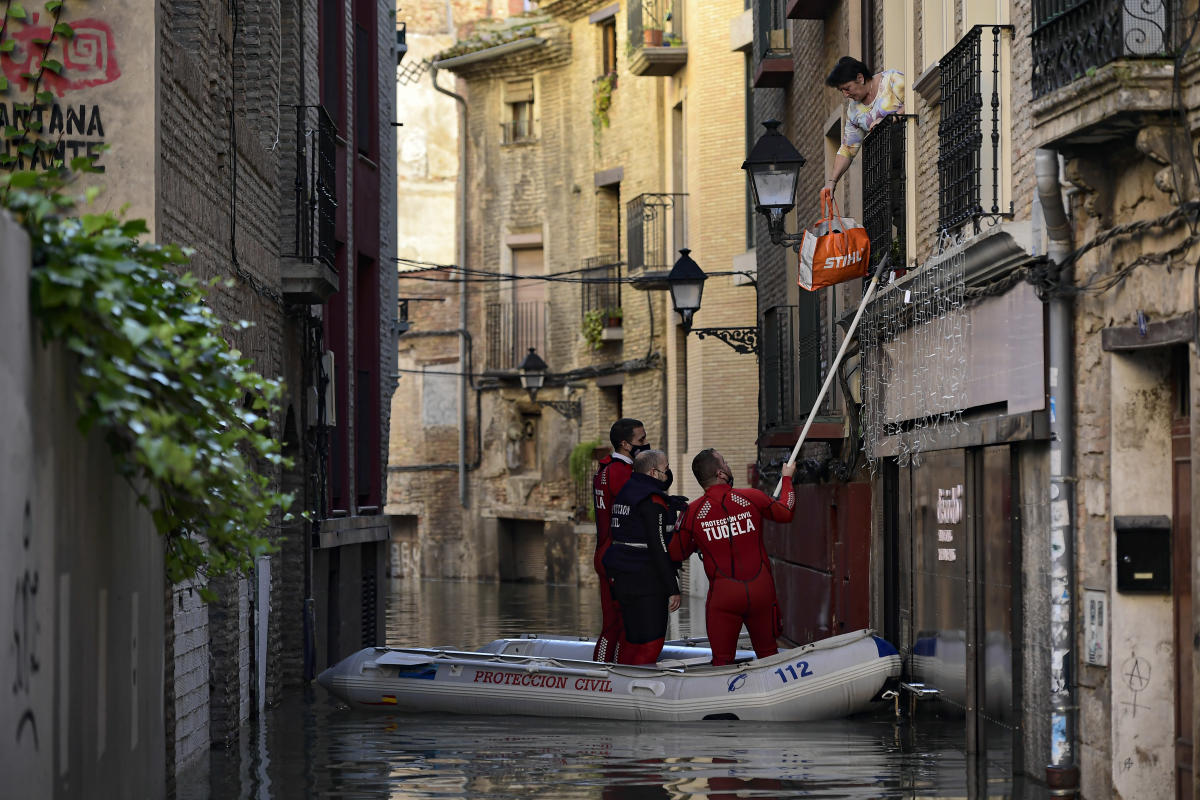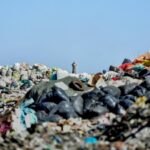
A new science report from the United Nations will spell out in excruciating detail the pain of climate change to people and the planet with the idea — the hope really — that if leaders pay attention, some of the worst can be avoided or lessened.
One scientist calls it the “Your House is On Fire” report.
While these reports often can come across as depressing, to scientists and world leaders, the idea isn’t to lower people’s spirits. The reports are designed to help the world navigate a dangerous future, back away from some cliffs where harms are irreversible and severe, and mostly to give leaders negotiating deals on how to curb future warming a sense of what can be done and why scientists say something must be done.
It’s really about hope not doom, said German vice chancellor and minister for economy and climate, Robert Habeck. American climate scientist Katharine Hayhoe of The Nature Conservancy and Texas Tech agreed.
“Hope can lead to action,” Habeck said in an interview with The Associated Press. “If you’re afraid of something, then you hide away, you shy away, you run away. If you hope for something, then you can find some motivation, power and energy in yourself. And this is what we need: hope that we can achieve great things that the problems of the moment can be overcome by building up a new renewable world.”
WHAT IS IT
Monday’s report is from the Intergovernmental Panel on Climate Change, a heavy hitter group of hundreds of scientists the UN asks to issue major reports every five to seven years about climate change. The scientists do three main reports. The first, on what’s known about the science behind climate change and general projections of future warming, came out last August and got nicknamed “code red” by UN Secretary General Antonio Guterres. After Monday’s report, the second, a third report comes out in several weeks. It will be on options to confront climate change.
Monday’s report is about the impacts, what climate change has done, is doing and will do to people and the world we live in. Hayhoe said if she were to give this report a nickname like the last one it would be: “Your House Is On Fire.”
“It is a massive compendium of how climate change is affecting us here, now, in ways that matter to our lives,” Hayhoe said in an email. “It shows how we can and must prepare for the impacts we can no longer avoid.”
And that means giving bad news about heat waves, floods, wildfires, droughts, sea level rise, disease, extinctions and climate homelessness.
“It’s important for people to be honest about the amount of impacts we’re likely to see,” said Stanford University environmental scientist Chris Field, who chaired this report in previous years.
HOW IT IS USED
“Science itself does not yet trigger actions,” United Nations Development Program chief Achim Steiner said. “We then have to respond. And the response to climate change today essentially affects every aspect of our lives.”
Each year, leaders and diplomats from around the world meet to ratchet up efforts to curb climate change, resulting in several agreements, the last two being the Paris accord of 2015 and a pact in Glasgow last year. The IPCC reports are frequently mentioned in negotiations. Scientists, such as Hayhoe, attend to explain consequences.
Up until 2015, the world’s goal was to limit warming to 2 degrees Celsius (3.6 degrees Fahrenheit) over pre-industrial times. But during the negotiations for the Paris agreement, leaders of small island nations complained that 2 degrees of warming would make some of their islands, their countries, uninhabitable. So the Paris accord adopted a secondary, tighter, goal of 1.5 degrees (2.7 degrees Fahrenheit) and asked the IPCC to study what the difference would be between the two warming thresholds.
A 2018 special report from the IPCC found dramatic differences, including loss of coral reefs, sea ice and some irreversible harms at 2 degrees that might not happen at 1.5 degrees. Making matters more immediate was the fact that the world has warmed 1.1 degrees since pre-industrial times, so this is about warming of just a few tenths of a degree from now.
“The fact is that it is the IPCC report of 2018 that refocused our energies from well below 2°C to 1.5 degrees specifically… as we did quite visibly and powerfully in Glasgow,” United States special climate envoy John Kerry told The Associated Press in an interview. “And even China, Russia, India, other countries that may have some differences about the pace and rate and implementation of some of the climate initiatives, even they accepted that this was the standard now, the 1.5 degrees. So the IPCC has a profound impact.”
“And I anticipate that this report will, just like the prior ones, have a very significant impact on the climate debate,” Kerry said. “I think it’s going to be quite dramatic in the picture it paints of how far behind we are.”
PAST, PRESENT AND FUTURE
These reports always look at what’s already happened in terms of climate change, what is happening now and give projections on what’s happening in the future.
Those future projections are often key and they have wide ranges, but mostly it’s due to the human factor. The reports spell out what happens if the world drastically reduces emissions of heat-trapping gases, what happens if it doesn’t and what happens in between.
That’s a key point in these reports: The future isn’t set. It depends on what’s done in governments, businesses and homes.
Because these reports come out every five to eight years, the next set of reports will likely come out as the world is within a tenth of a degree or two of that 1.5 degree goal.
So climate scientist Zeke Hausfather of the Breakthrough Institute said he suspects the next version of this report won’t be so much about how to prevent 1.5 degrees of warming but “what would be needed to bring global temperatures backdown to 1.5 in the 22nd century.”
MAKING THE SAUSAGE
The report does not do new science. It is all based on previously published peer-reviewed science.
Scientists write the report, which then gets reviewed by other scientists, governments and others. There’s a giant report with more than 1,000 pages, but the real key is called the Summary for Policy Makers, showing how this is aimed at world leaders. For the past two weeks, scientists and governments review and rewrite the draft line by line.
The summary has to be approved by consensus and some language gets watered down. It is a slow process that in this case has already passed its Friday deadline.
Most of all of the attention is spent on the summary, which can run into the dozens of pages. But there are 26 chapters or supplements, with some of them concentrating on specific regions, others looking at health, food, cities or risk.
___
Borenstein contributed from Kensington, Maryland, and Jordans from Berlin.
___
Read more of AP’s climate coverage at http://www.apnews.com/Climate
___
Follow Seth Borenstein on Twitter at @borenbears and Frank Jordans at @wirereporter
___
Associated Press climate and environmental coverage receives support from several private foundations. See more about AP’s climate initiative here. The AP is solely responsible for all content.




